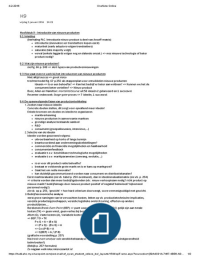Summary
Samenvatting Marketing Hoofdstuk 9
- Course
- Institution
- Book
Hoofdstuk 9 - Introductie van nieuwe producten Vak: Marketing Docent: Vanhaverbeke Johan & Dermaux Ignace Odisee Hogeschool Brussel 1ste semester van Studierichting: 1ste jaar Bedrijfsmanagement - Oriëntatiejaar Marketing/Logistiek Management ECTS: B-ODISEE-HBB41F Link: http://onderwijsaanbod.od...
[Show more]




